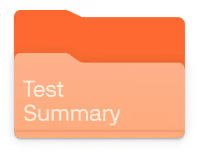
Key Benefits
- Track long-term folate stores inside red blood cells, beyond day-to-day swings.
- Spot true folate deficiency that can cause fatigue, mouth sores, and anemia.
- Clarify large red cells by confirming or excluding folate as the driver.
- Guide tailored supplementation and fortified diet changes to restore and maintain levels.
- Protect pregnancy by meeting WHO RBC folate target (>906 nmol/L) before conception.
- Flag high homocysteine risk from low folate, affecting heart and brain health.
- Explain folate depletion from methotrexate, anticonvulsants, alcohol, celiac, or bariatric surgery.
- Best interpreted with vitamin B12, CBC/MCV, and homocysteine to avoid missed B12 deficiency.
What is Folate, RBC?
Folate, RBC measures the folate stored inside your red blood cells. Folate is a B‑vitamin from food that your body converts into active forms (vitamin B9; tetrahydrofolate). As new red blood cells are made in the bone marrow, they take up folate and lock it in by adding glutamate tails (erythrocytes; polyglutamated folate). Once a red cell matures, it no longer imports or releases folate, so its folate content stays essentially fixed for the cell’s lifespan. This means RBC folate reflects the folate available when those cells were formed.
Folate helps your body make and repair DNA, add methyl groups to molecules, and process certain amino acids (one‑carbon metabolism, nucleotide synthesis, remethylation of homocysteine). Because red cells trap folate at birth and circulate for months, RBC folate captures longer‑term folate availability to tissues rather than short‑term dietary swings. It signals whether cells had enough folate to support healthy cell division, red blood cell maturation, and other folate‑dependent processes important for growth and reproduction.
Why is Folate, RBC important?
RBC folate measures the folate stored inside red blood cells, giving a months‑long view of your body’s folate status. Folate powers one‑carbon metabolism—how you build DNA, make new blood cells, methylate genes and neurotransmitters, and recycle homocysteine. Because red cells live about 120 days, this test maps your longer‑term supply, not just yesterday’s diet.
Most labs define a lower cutoff for adequacy; values in the middle to upper part of the range generally reflect robust tissue stores. During pregnancy, higher levels within the normal range are typically desired to support early fetal neural tube formation.
When RBC folate runs low, DNA synthesis slows and bone marrow produces large, fragile red cells (megaloblastic anemia). Fatigue, shortness of breath, pale skin, mouth sores, and a smooth, sore tongue can appear. Homocysteine often rises, stressing blood vessels. Rapidly renewing tissues—gut lining, skin, hair—may be affected. In pregnancy, low folate is linked to neural tube defects and placental complications; in children and teens, it can blunt growth and learning due to reduced cell division.
Very high RBC folate usually reflects sustained high intake or fortification and is often asymptomatic. The key risk is context: if vitamin B12 is low, abundant folate can partially normalize the blood picture while neurologic injury from B12 deficiency progresses, so results are best interpreted alongside B12 and homocysteine.
Big picture: RBC folate sits at the hub of hematology, neurology, and cardiovascular biology. It interlocks with B12 and B6 to keep homocysteine in check, supports healthy blood formation and tissue repair, and, across the lifespan, influences pregnancy outcomes, cognition, and vascular health.
What Insights Will I Get?
Folate, RBC measures the folate stored inside red blood cells, reflecting your long-term folate supply to tissues. Folate drives one‑carbon metabolism—DNA and RNA synthesis, methylation for gene regulation, homocysteine recycling, and neurotransmitter formation—so it connects to energy production, cardiovascular health, cognition, reproduction, and immune integrity.
Low values usually reflect too little folate available when red cells were made, from low intake, malabsorption, increased demand (notably pregnancy), or medications that block folate pathways. Low vitamin B12 can also cause a functional folate deficiency. Physiology shifts toward impaired DNA synthesis, leading to macrocytosis and megaloblastic anemia, higher homocysteine with endothelial stress, mucosal and immune vulnerability, and in pregnancy, increased neural tube defect risk. Older adults may experience cognitive and mood effects.
Being in range suggests sufficient intracellular folate for nucleotide synthesis and methylation, supporting steady blood formation, normal homocysteine metabolism, and resilient neurological and reproductive function. For those planning pregnancy or in early gestation, values toward the higher end of the reference range are associated with the lowest neural tube defect risk.
High values usually reflect high folate exposure (fortified foods or supplements) or reduced red cell turnover. On its own it is seldom problematic, but when vitamin B12 is low, high folate can correct anemia while allowing neurological injury to progress; this combination has been linked to cognitive decline in older adults. Recent transfusion can transiently elevate results.
Notes: RBC folate changes slowly over the 2–3 month red cell lifespan and is influenced by reticulocyte count, hemolysis, and transfusion. Assays vary by lab, and serum folate is not interchangeable. Alcohol use, liver disease, pregnancy, and anti-folate medications can shift values independent of diet.






.avif)



.svg)





.svg)


.svg)


.svg)

.avif)
.svg)










.avif)
.avif)
.avif)


.avif)
.png)


